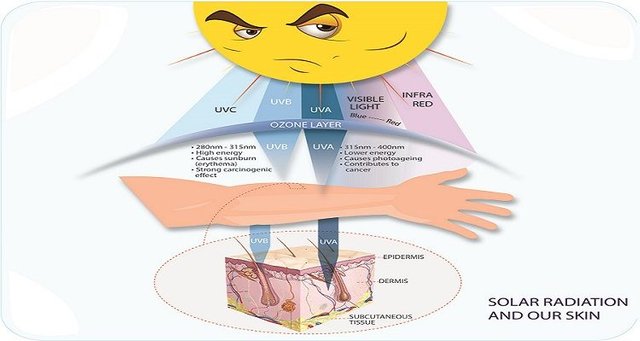Understanding SPF Sunscreen: (Sun Protection Factor Explained)
Everyone knows that sunscreen is really important for keeping your skin looking healthy over the years for sun exposure and also preventing cancer.
 [1]
[1]What exactly does that SPF number mean and how high should you go?
That’s what I'm going to go over in this article because it's actually dead simple and you're going to be surprised to know what it means if no one explained it already to you.
SPF stands for “Sun Protection Factor” and it simply represents the fraction of burning UV rays that it allows through to your skin. For example, say you have SPF 15, that means it's only going to allow 1/15 of the UV light through to your skin (SPF 1/15), meaning it blocks 94% of it. A better way to think of this is because it only allows 1/15 of the UV light through, it's going to take 15 times longer for you to get sunburned.
For instance, you burn in 1 minute on a really hot summer day but you put on SPF 15 sunscreen, you multiply that 1 minute by a factor of 15 sun protection factor, that means it takes you 15 minutes to get the same burn as you normally would with no sunscreen. At this point, it's really easy to see how you can tell how effective sunscreen is going to be, just by multiplying the SPF by the amount of time it usually takes you get burned, maybe a few minutes.
How can you tell exactly what SPF you should get?
There's actually a lot more to just the number but I'll get into that in a bit. The FDA actually recommends a minimum of SPF 15 for decent protection but the American Academy of Dermatology recommends at least SPF 30.
As I mentioned before, you should be looking at more than just the number because there's a couple types of UV radiation and different sunscreens don't protect against them all. Typical sunscreen actually protects you against what is known as “UVB” radiation, this is what causes the normal symptoms of sunburns such as redness, pain but there's actually another type of radiation called “UVA” which causes much more invisible damage.
UVA radiation actually doesn't necessarily cause pain and redness that you normally associate with sunburn, but it does go deeper into your skin and it can actually damage DNA in cells which leads to an increased risk of skin cancer.
 [3]
[3]I'm not really going to get into the biology of it but basically, anytime your DNA gets damaged, your cells have to repair it and sometimes if it gets damaged a lot, then there's more prone for errors and therefore cancer.
While you put on regular sunscreen, you might think you're fine because you're not getting burned but you might actually be getting UVA damage that you don't even notice. There are sunscreens that are called Broad-Spectrum which do claim to protect against both UVA and UVB radiation which is really what you want to use.
However, not all broad-spectrum sunscreen is created equal, there's two main ingredients that might be used in broad spectrum sunscreen, those are Titanium Dioxide and Zinc Oxide. These are two different ingredients that might be used and at least one study in 2001 found that zinc oxide is more effective at blocking more wavelengths of UVA, so compared to Titanium Dioxide, it may be better at protecting you. But either way, it's better to use any broad spectrum sunscreen than it is to use just regular stuff.
Conclusion
In conclusion, the ideal sunscreen you would want to use is at least SPF 30 broad-spectrum and if you can find something like zinc oxide in it. That's the gist of it, so hopefully, you guys got some good info out of there. I'm going to be interested in what you guys think about this and if you find it interesting, don’t forget to hit that upvote button down below.
References: 1 - 2 - 3 - 4
Image sources: 1 - 2 - 3


GIF made by @foundation
Thanks to @camzy for this amazing toon.


Thank you so much for the explanation ! loved your post and followed you !
Thanks
Thank you for your posts, I am following and look forward to your future knowledge sharing
I appreciate.
@ememovic I'm using SPF 60 :o but as per you post we apply sunblock after every 15 minutes right?
No, I used it as an example.
Although cancer causing probability is low but something which cannot be neglected. Great article! Keep working hard.
Thanks